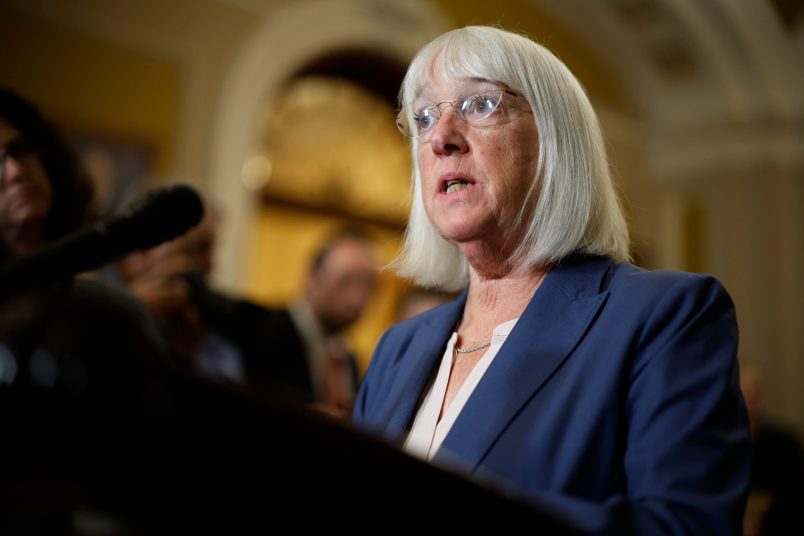When the gavel came crashing down Tuesday afternoon, declaring the Office of the Speaker of the House vacant, Sen. Patty Murray (D-WA), the Senate president pro tempore, found herself one step higher on the ladder of presidential succession.
Murray confirmed her upgraded place in the line of succession during an interview with the New York Times Wednesday, acknowledging the new and temporary — although unclear for how long — reality.
“It’s not the trappings of it. It’s really the job of it,” Murray told he Times. “I have a job to do and it’s really important, and I want to make sure that I’m successful at it.”
It’s a job – and a “constitutional role” as her office put it – the senator has always taken very seriously, her spokesperson said in response to TPM’s inquiries about her new status. As the Succession Act of 1947 makes clear the line of succession to replace the U.S. president goes vice president, Speaker of the House, Senate President pro tempore, followed by a line of cabinet members.
Further: “If the offices of President and Vice President are vacant simultaneously, the Speaker of the House of Representatives acts as President, after resigning from the House and from the office of Speaker. If the speakership is also vacant, the President pro tempore of the Senate acts as President,” according to a 2020 Congressional Research Service report.
But there have been discussions around whether an acting speaker could temporarily join the line of succession in the days since Rep. Kevin McCarthy’s (R-CA) ousting. As the House is in a state of limbo without an elected speaker and the Office of Speaker effectively vacant, there appears to be a consensus on whether Murray gets bumped up a notch in the order.
Sen. Chuck Grassley (R-IA) — who was the President pro tempore of the Senate from 2019 to 2021 — told TPM, yes, she does. “She can handle anything that’s thrown at her,” he added.
Brian Kalt, a constitutional law professor at Michigan State University had a similar assessment of the ranking. Some may argue that the Speaker’s office is actually still occupied since Rep. Patrick McHenry (R-NC) is currently the Speaker pro tempore. But they would be wrong, Kalt told TPM.
“I think that that’s not right. I think that the Succession Act of 1947, when it talks about the speaker, is talking about an elected speaker,” Kalt told TPM. “Someone that the House has chosen as speaker, not someone who is just temporarily occupying the chair.”
There is a clear difference between a Speaker and a Speaker pro tempore, Klat said. In simple words, one is elected by the House of Representatives and the other is occupying the vacant chair.
“The Constitution says you have to be an officer to be in the line of succession. And the argument is that officers of the United States and members of Congress are specifically separate categories,” Kalt explained. “The Constitution also says that the House chooses the speaker and its other officers. So if they haven’t chosen this person, then Speaker Pro Temp is not an officer.”



